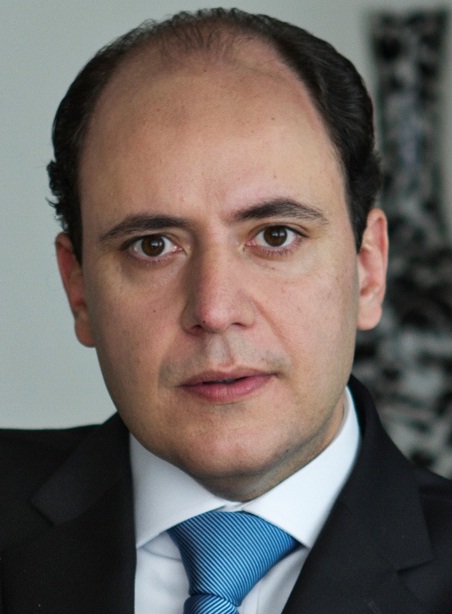How to make the compliance program an ally of good business
The fight against corruption is surely one of the main struggles nowadays. Unrestrained, misdeeds cause the loss of businesses trust, blocking the nation’s development and weakening the promise of democracy, besides, of course, raising business costs worldwide and jeopardizing the stability of and faith in the markets. Finally, the corruption phenomenon is, among various options, the main reason that leads many Brazilians to declare a lack of trust in the country.
In this context, according to the Global Fraud Survey, developed by Ernst&Young, 15 percent of Brazilians occupying executive posts report that, pressured by delivering results, they are willing to bribe in order to achieve the goals established by their companies. It does justice to the sad and disturbing index disclosed by the São Paulo State Industries Federation (FIESP), that the corruption in Brazil consumes around 2.5 percent of the annual GDP – something around US$50 billion yearly. It is also worth mentioning that tax evasion cost Brazil US$208 billion in 2013.
On the other hand, we have seen more Brazilian and multinational companies recognize and act on the importance of having a robust and efficient compliance program. In face of the current regulatory environment in Brazil, companies with robust and efficient compliance programs will significantly reduce the incidence of corruption in their transactions, and they will certainly lose less business opportunities compared with companies without such robust and effective compliance programs. So, indeed, we now face compliance as a competitive advantage.
To foster a culture of ethics and corporate integrity in the company is certainly one of the most important roles of a company leader, given the exposure and relevance the compliance area has taken in the corporation. Worldwide initiatives and international laws, such as the U.S. Foreign Corrupt Practices Act (FCPA), the UK Bribery Act and the recent Brazilian anti-corruption law, The Clean Companies Act (referred hereafter as “The Act”), passed in August 2013 and in force since January 29, 2014, lead to a greater level of exposure of the companies. That leads compliance to become more strategical and necessary, not only in mitigating financial and image risks, but also ensuring that the right results will be achieved the right way, reinforcing the ethics and the integrity of corporate transactions.
For the companies now having to adjust themselves to comply with The Act, they will need to be ready to answer to the Brazilian enforcement agencies when they ask the following when coming across any evidence of corruption: What have you done to prevent it happening in your operations?
Even though The Act is still pending regulation on the federal level, taking into consideration the analogous behavior experience and the industry’s good practices, the regulatory agencies surely will acknowledge the previous existence of robust compliance programs as a preponderant factor on the enforcement of penalties, which are indeed very severe. Thus, the companies will certainly be benefited when it is proven that they have done everything in order to fight the corruption within the business and have also cooperated with the authorities when such wrongdoing has been detected.
In this scenario, some steps will definitely play a key role on the verification of sanctions. They are: (1) voluntary disclosure to the authorities regarding the wrongdoing detected; (2) the company executives may not be involved in any unlawful conduct; (3) full cooperation with the enforcement agencies, including the information and evidence disclosed against employees and top management; (4) remediation plans to avoid further unlawful conduct, including disciplinary actions, an anti-corruption program and improved internal controls; and (5) to have a robust compliance program before the wrongdoing happens.
As said, the compliance area is in the midst of unprecedented growth and development in Brazil and worldwide. The Brazilian and foreign companies that do businesses in Brazil should have a specialized support to guide them in acting in compliance with different conduct rules in various operating countries, besides the most recent guidelines from the regulatory agencies such as the U.S. Department of Justice, U.S. Securities and Exchange Commission and the Serious Fraud Office, upon the advent of a legislation known as UK Bribery Act.
The life cycle of a consistent compliance program applies to any industry. It is necessary is to understand the specific requirements and risks of a certain industry and its sector (full risk assessment). From there, it is required to develop an effective compliance program meeting the requirements from the regulatory agencies and to mitigate the possible risks of violating the industry-specific applicable legislation.
Finally, the need is clear to take a stand in favor of a full compliance life cycle to prevent, detect and respond to the compliance needs. So, in order to develop a compliance program that will meet the expectations of the Brazilian enforcement agencies, companies subject to The Act will have to take the following steps: (a) full compliance risk assessment; (b) establish clear policies and procedures; (c) direct and unrestrained involvement of the top management; (d) continuous education and clear and concise communication; (e) periodic audits and transaction monitoring; (f) the existence of a communication channel so the employees can express their doubts, complaints or concerns; (g) due diligence of business risks (integrity due diligence), especially for high-risk third parties who interact with government entities on behalf of the company; and (h) periodic review of the anti-corruption program. These are the main elements of a best-in-class compliance program based on the triad: prevention, detection and response.
A new Brazilian anti-corruption regulatory framework (The Act) is in force in Brazil. And the urgent question – the one that needs an assertive response right now – is also very simple: Are you and your company prepared to comply with The Act?











